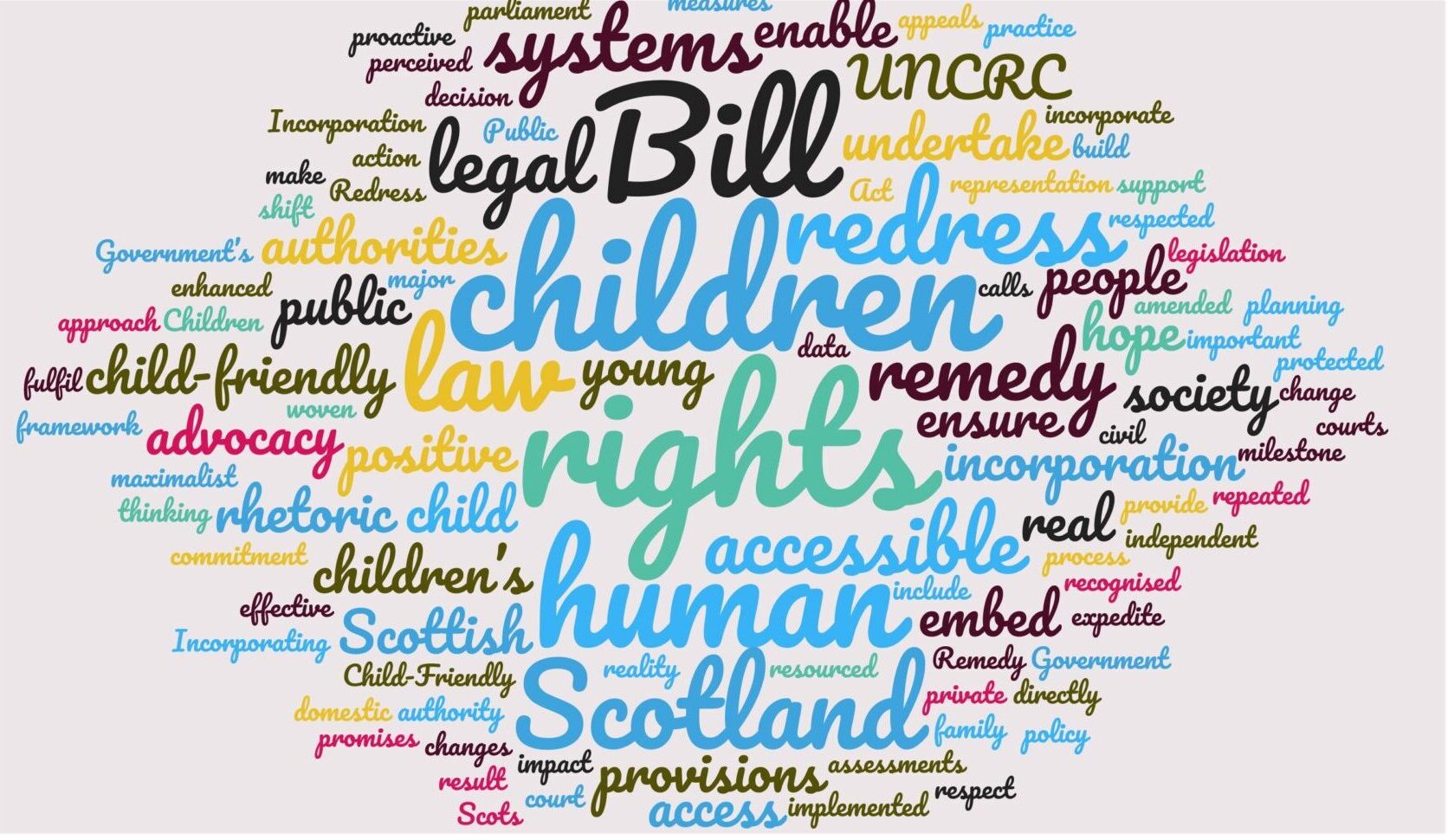Incorporating the UNCRC– are we going far enough to embed children’s human rights in Scotland?

Authors: Fiona Morrison, Máire McCormack and Kay Tisdall
The United Nations Convention on the Rights of the Child (Incorporation) (Scotland) Bill marks a major milestone for children’s human rights in Scotland. The legislation is the result of hard and effective advocacy by children and young people and by members of civil society. It is the Scottish Government’s response to their repeated calls for more to be done to make children’s human rights real – for children’s human rights to be more than rhetoric. And the Scottish Government has increasingly made its commitment to do so.
What will incorporation do?
Incorporation can bring positive changes for children’s human rights. It can change how children and young people are perceived and how they are treated in society. We hope it will expedite a shift in how children are viewed – from dependants to bearers of rights – rights that must be respected and protected.
What does the Bill do?
The Bill will directly incorporate the UNCRC into Scots law. It aims to ensure ‘children’s rights are woven into policy, law and practice in Scotland and enable children to rely on their rights in the domestic courts’. It promises to undertake a ‘maximalist approach’ to incorporation.[1] The Bill sets out a range of provisions that have the potential to ‘make rights real’ for children in Scotland. It will set out a framework where all of us can build children’s rights into our planning and thinking, so we can proactively respect, support and fulfil children’s rights.
Sounds great – but does it go far enough?
The Bill is positive in many ways – but we think it can go further to ensure children’s human rights are not only recognised but also are implemented. In our written views, we highlight ten areas where we think more can be done to embed children’s rights. These include having much better data to know whether children’s rights are being met. Public authorities should undertake and publish their own children’s rights impact assessments. While these measures may help at a macro level, we think more can also be done to help individual children to claim their rights and seek remedy and redress when they think their rights have been violated.
The Bill is positive in many ways – but we think it can go further to ensure children’s human rights are not only recognised but also are implemented.
Child-Friendly Systems of Complaints, Remedy and Redress
The Bill makes provisions so a child can take legal action against a public authority if they believe their rights have been violated. This is an important first step to enable children to claim their rights. But we think the Bill should go further.
We highlighted the lack accessible child-friendly complaints, remedy and redress in private law during the passage of the now Children (Scotland) Act 2020 through parliament. This issue remains unresolved.[2] In family law there are no clear or accessible ways for children, to tell a court that their child welfare report was inaccurate before a decision is made. While there is an existing legal process for appeals it is not accessible to children.
At a minimum we hope the Bill will be amended to provide child-friendly systems of remedy and redress for all public authorities. The Bill should also provide enhanced systems of advocacy and access to independent legal representation, for children, which is adequately resourced and sufficiently available. These are critical to ensure children are able to access systems of redress and claim their rights when they are breached.
At a minimum we hope the Bill will be amended to provide child-friendly systems of remedy and redress for all public authorities. The Bill should also provide enhanced systems of advocacy and access to independent legal representation, for children, which is adequately resourced and sufficiently available.
Without addressing these, there is a danger that children remain unable to claim their rights when they are breached – and that children’s human rights remain a rhetoric not a reality.
Notes:




Comments are closed
Comments to this thread have been closed by the post author or by an administrator.